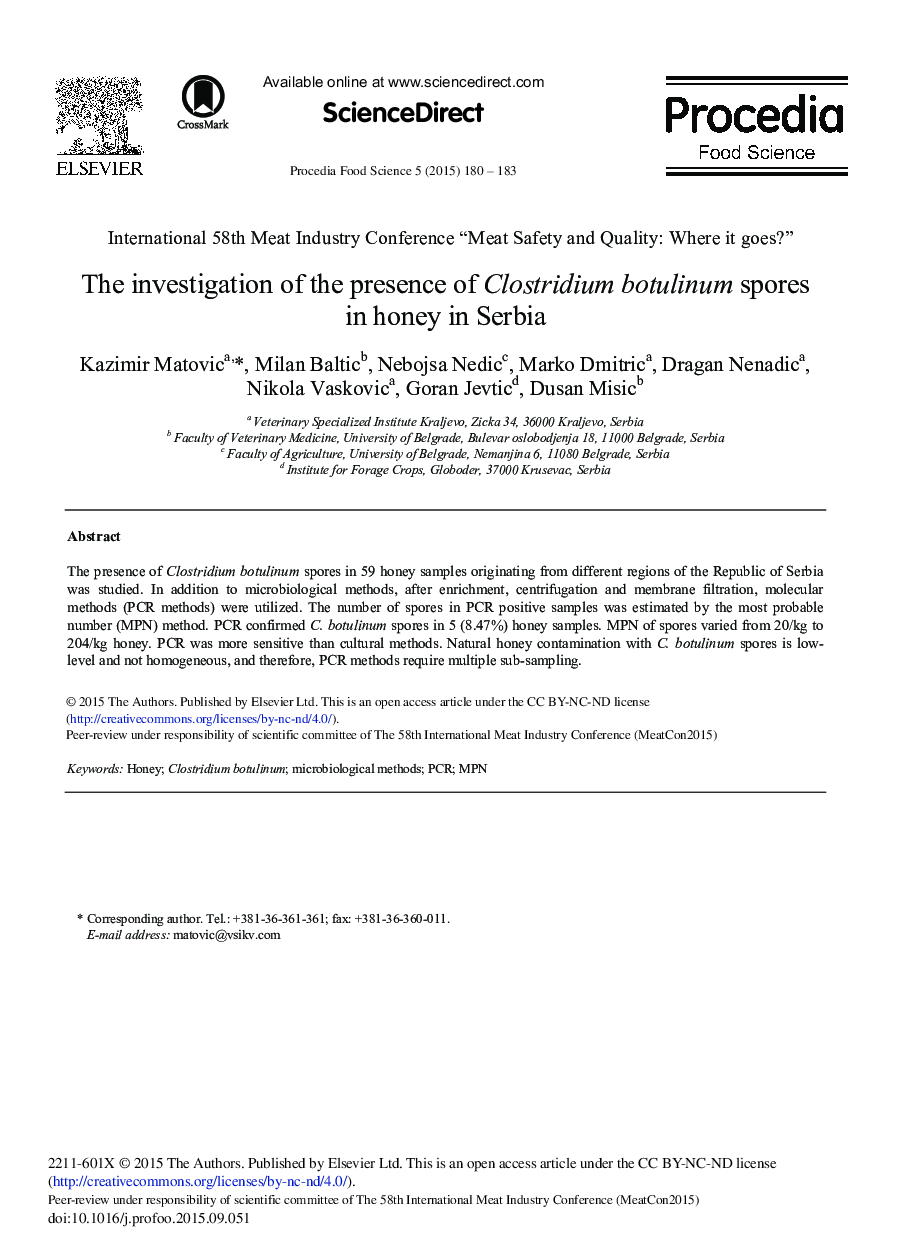| Article ID | Journal | Published Year | Pages | File Type |
|---|---|---|---|---|
| 1266315 | Procedia Food Science | 2015 | 4 Pages |
Abstract
The presence of Clostridium botulinum spores in 59 honey samples originating from different regions of the Republic of Serbia was studied. In addition to microbiological methods, after enrichment, centrifugation and membrane filtration, molecular methods (PCR methods) were utilized. The number of spores in PCR positive samples was estimated by the most probable number (MPN) method. PCR confirmed C. botulinum spores in 5 (8.47%) honey samples. MPN of spores varied from 20/kg to 204/kg honey. PCR was more sensitive than cultural methods. Natural honey contamination with C. botulinum spores is low-level and not homogeneous, and therefore, PCR methods require multiple sub-sampling.
Related Topics
Physical Sciences and Engineering
Chemistry
Chemistry (General)
